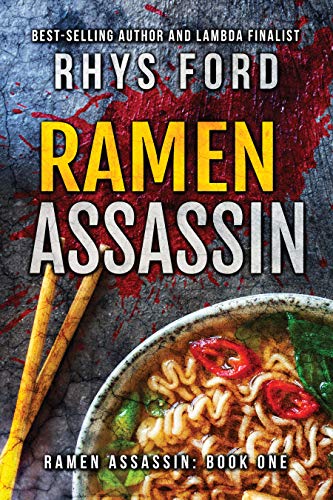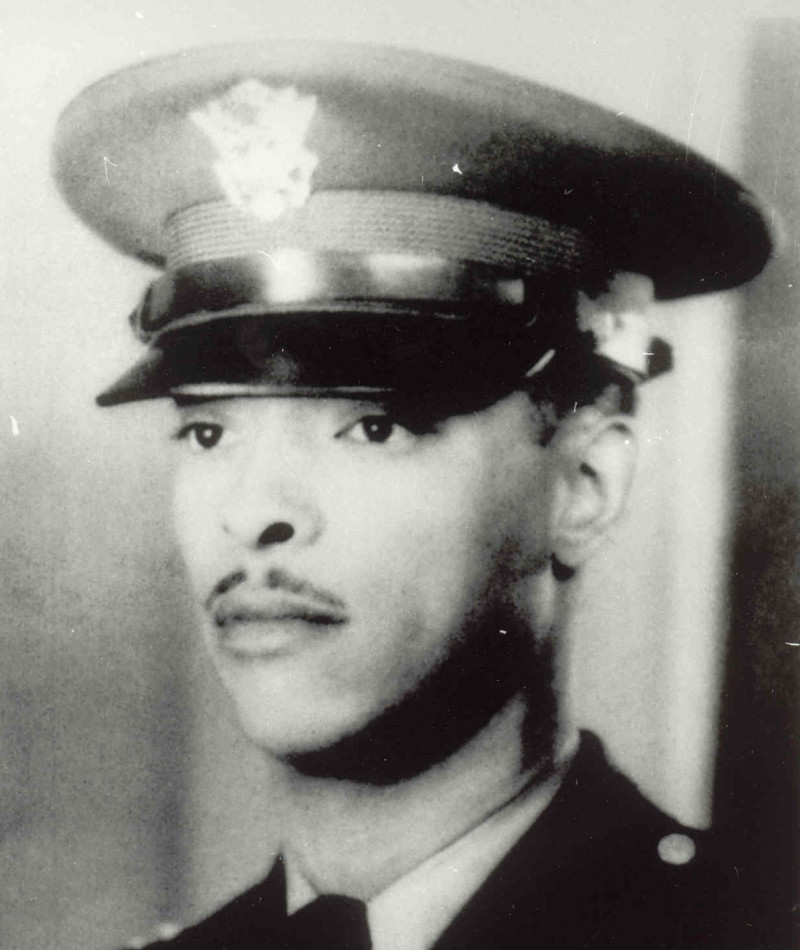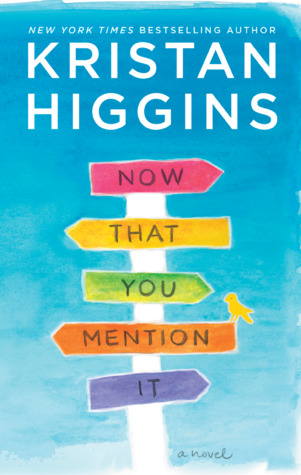 Ramen Assassin (Ramen Assassin #1)
Ramen Assassin (Ramen Assassin #1) by
Rhys Ford Format: ebook Source: author Formats available: paperback, ebook
Genres: M/M romance,
romantic suspense Series: Ramen Assassin #1 Pages: 216
Published by Dreamspinner Press on June 25, 2019
Purchasing Info: Author's Website,
Publisher's Website,
Amazon,
Barnes & Noble,
Kobo,
Bookshop.org Goodreads When life gives Kuro Jenkins lemons, he wants to make ponzu to serve at his Los Angeles ramen shop.
Instead he’s dodging bullets and wondering how the hell he ended up back in the black ops lifestyle he left behind. After rescuing former child star Trey Bishop from a pair of murderous thugs, he reluctantly picks his guns up again. It seems trouble isn’t done with Trey, and Kuro can’t quite let go… of either danger or Trey.
Trey never denied his life’s downward spiral was his own fault. After stints in rehab, he’s finally shaken off his Hollywood bad-boy lifestyle, but not his reputation. The destruction of his career and relationships was epic, and no one trusts anything he says, including the LAPD. When two men dragging a dead body spot him on a late-night run, then try to murder him, Trey is thankful for the tall, dark, and deadly ramen shop owner not just for rescuing him, but also for believing him.
Now caught in a web of murders and lies, Trey knows someone wants him dead, and the only one on his side is a man with dark secrets. Trey hopes Kuro will stick around to see what the future holds for them once the dust settles, but from the looks of things, neither of them may survive to find out.
My Review:
This book will make you hungry. For some good ramen. (The author has even sent a recipe to get you started!) And for more of this series and these characters. Consider yourself warned!
I want to say that the opening of Ramen Assassin reminds me more than a bit of Sinner’s Gin. But that’s not strictly true. What the initial scenes really remind me of is the opening of a James Bond movie, the part before the opening credits where Bond finds himself unexpectedly in the middle of a firefight and has to kill someone whose death seems coincidental but turns out to be critical to the main story.
And that is the way that Ramen Assassin opens. Kuro Jenkins is a covert (US) government agent, and he enters the story rescuing a bunch of kidnapped children, tearing up the streets in a bullet-riddled van only to crash through the gates of the American Embassy and smack dab into a crowd of international reporters covering a garden party.
With his cover completely, totally and utterly blown, and his body nearly as full of bullets as that van, Kuro hangs up his secret identity and opens a tiny noodle shop in the Koreatown area of Los Angeles.
Just because he’s hung up his secret identity doesn’t mean that he’s put away all the tools of his former trade. That turns out to be a good thing for washed-up former child star Trey Bishop, when Trey races past his closed shop in the middle of the night, chased by armed goons for no reason that Trey knows.
Except that he witnessed those goons transporting a very dead body – an act they clearly don’t want any witnesses for – whether those witnesses will be believed or not.
And this is the point where the opening starts reminding me of Sinner’s Gin. Because Trey needs protection – not just from the goons, but from his sister-the-cop, the dysfunctional rich family that he has disappointed at every turn, and his own demons.
In protecting Trey, Kuro discovers that he’s never lost the taste for the adrenaline rush of his old job – and hasn’t lost many of his skills either. He’ll need to be back on his A game to protect Trey from whoever is out to get him – because that dead guy was not the figment of Trey’s formerly drug-addled mind as the police in general and his sister in particular want to believe it was.
Someone is out to get Trey, and Kuro is the only thing standing in their way. If he’ll stick. Something that neither Trey nor Kuro have much practice in. But the goon squad is playing for keeps – and it turns out, so is Kuro. And surprising everyone who knows him, so is Trey.
If Kuro can keep both of them alive long enough to figure it all out.
Escape Rating A-: It’s not just that the relationship between Kuro and Trey reminds me more than a bit of the relationship between Miki St. John and Kane Morgan in Sinner’s Gin – although it does. It’s also that we discover very early on that Trey is a fan of Miki’s – so this is the same world and it’s possible they might overlap at some point.
I hope so, it’s always good to see how old friends are doing – and for many, many readers, the cast of the Sinner’s series have become very good friends indeed. However, the connection is extremely loose and there’s no NEED to read the Sinner’s series before Ramen Assassin, but if you like this you’ll like that and vice versa.
But back to Ramen Assassin, which has to be one of the great titles. It’s completely apt, brings a smile to the reader’s face, intrigues one to read more to figure it out – and it’s absolutely apropos. Kuro may not have exactly been an assassin, but he was a government agent with the proverbial license to kill, and he is currently a ramen shop owner and chef.
Ramen Assassin is romantic suspense, at least it’s that more than it’s any other genre. As romantic suspense, that means there are two primary plot threads, one is the budding romantic relationship between Kuro and Trey, and the second is figuring out who is after Trey and why so that our heroes can figure out whether they have a future together – after they deal with whoever is trying to prevent them from having a future at all.
Watching Kuro and Trey hesitantly work towards a relationship is beautifully torturous. They sorta/kinda knew each other before the alley shootout. They live in the same neighborhood, Kuro lives above his shop, and Trey is a semi-regular customer. They’ve been eyeing each other for a while, but they both have cases of the “I’m not worthys”, albeit coming from entirely different perspectives.
Kuro’s former occupation did not exactly lend itself to long-term relationships, as evidenced by any spy thriller or cop series where the operative has to remain unknown and undercover. Having to lie about who you are, what you do and where you go is not exactly conducive to any relationship longer than a brief fling.
Kuro’s just inexperienced and out of practice – not that he ever had much – at relationships. Trey, however, has a metric buttload of baggage dragging behind him. He doesn’t think he’s worthy of a relationship or capable of being part of one because he hasn’t been. He was a spoiled, indulged child star who descended into booze, drugs and entirely too many self-induced near-death experiences. He’s lied, cheated and stolen to get his next fix, and his family are the people he’s lied to the most. Hence his sister-the-cop’s complete distrust of anything he says or does.
But Trey’s been clean and sober for two years now – and beginning to be fed up with continuing to pay for his mistakes. Not that there weren’t plenty of them and not that he didn’t deserve to pay and pay plenty. But there has to be a point where the hard work that he’s done in the past two years earns him at least a tiny bit of “trust but verify” instead of suspicion and derision and only suspicion and derision.
With Kuro, Trey has a clean slate. Building a relationship is hard – it’s hard for both of them. But watching them work towards it is terrific. They earn their chance at happy.
The suspense plot starts with a bang. Honestly, lots of bangs. Initially, it seems very simple – two goons are transporting a dead body and try to clean up the only witness – Trey. But that simple beginning spirals out of control in every possible direction. The goons go after Kuro directly – big mistake. More goons come after Trey. That initial dead body is somehow tied to Trey’s uber-rich daddy and his very successful business. The cops are fixed in their belief that everything must be Trey’s fault. And it kind of is, but not anything like the way they think it is.
In the end, the mess goes into (I really want to say “goos” into, because it’s a big sploogy mess), some of the shadier parts of Kuro’s past and some of the murkier places of not Trey’s past but his dad’s. And finally explodes in a direction that felt like it came a bit out of left field – at least for this reader.
I loved Ramen Assassin. I enjoyed the developing relationship between Kuro and Trey, the beginnings of Trey’s redemption with his highly dysfunctional family, and peeks into Kuro’s secret history.
I’m hungry for more. Soon, please!

Guest Post from Rhys (and Recipe from Kuro!)
Hi! I am Rhys Ford and I would like to welcome you to this stop on the Ramen Assassin Blog Tour!
I am looking forward to introducing you a new series as well as two very fun characters I enjoyed writing, Kuro Jenkins and Trey Bishop. The first book, Ramen Assassin, came to me as a nebulous idea but then really pushed into the forefront of my brain while I was beginning to write Hellion, the third book in the 415 Ink series. Unfortunately, I scared TA Moore with a very bad habit of mine called staring into space while thinking. I was contemplating the ins and outs of a series called Ramen Assassin and she took my crazed, unfocused look as the possibility of a spider of the wall behind her.
There was no spider. But what did come out of it was a murder mystery about a former government operative turned ramen chef and the recovering drug addict, former child star he saves from certain death and eventually falls in love with.
This book allowed me to combine two things I love — killing people and cooking. I hope you enjoy reading it as much as I enjoyed writing it. On this blog tour, I’m going to be sharing a few of my favorite dishes as well as a how to throw together ramen with what you have in your pantry and refrigerator. Please be sure to hit up every single stop on the blog tour for a different recipe at each stop as well as that blog’s giveaway!
Be sure to enter to win a twenty dollar gift certificate from Dreamspinnerpress.com! One for every stop!
And now, onto the food…
Oyakodon
Ingredients
1⁄4 cup onions, peeled and sliced julienne
1 boneless chicken thigh cut into bite-size strips
1⁄8 cup kamaboko (fish cake) cut into strips (optional)
2 tablespoons mirin
2 tablespoons shoyu (soy sauce)
2 tablespoons sake
2 tablespoons dashi, you can use scratch or instant. In a bind, chicken stock will work.
2 Eggs
Garnish
1 pinch sliced green onions
1 dash furikake optional / nori flakes will do
Instructions
Break 2 eggs into a bowl, and lightly beat the eggs, make sure that the whites and the yolk are not completely incorporated. It should look partially separated.
Combine the onions, chicken, kamaboko, mirin, soy sauce, sake, and dashi in a 6 inch non stick pan and place over high heat. When the liquid comes to a boil, reduce the heat and simmer for about 3 minutes, until the chicken cooks through. Move the pan around as it cooks.
While the broth is still lightly simmering, pour three-fourths of the egg mixture over the chicken, onions, and broth.
Leave the pan still and do not mix for about 1 minute.
Add the remaining one-fourth egg over the ingredients in the pan. Cover the skillet and cook for 30 seconds more.
Turn off the heat, and let the oyakodon rest, covered, for 1 minute.
While the oyakodon is resting, portion the rice into a bowl. Gently slide the Oyako into the bowl and garnish. Serve immediately.
About the Author
 Rhys Ford is an award-winning author with several long-running LGBT+ mystery, thriller, paranormal, and urban fantasy series and is a two-time LAMBDA finalist with her Murder and Mayhem novels. She is also a 2017 Gold and Silver Medal winner in the Florida Authors and Publishers President’s Book Awards for her novels Ink and Shadows and Hanging the Stars. She is published by Dreamspinner Press and DSP Publications.
Rhys Ford is an award-winning author with several long-running LGBT+ mystery, thriller, paranormal, and urban fantasy series and is a two-time LAMBDA finalist with her Murder and Mayhem novels. She is also a 2017 Gold and Silver Medal winner in the Florida Authors and Publishers President’s Book Awards for her novels Ink and Shadows and Hanging the Stars. She is published by Dreamspinner Press and DSP Publications.
She’s also quite skeptical about bios without a dash of something personal and really, who doesn’t mention their cats, dog and cars in a bio? She shares the house with Harley, a grey tuxedo with a flower on her face, Badger, a disgruntled alley cat who isn’t sure living inside is a step up the social ladder as well as a ginger cairn terrorist named Gus. Rhys is also enslaved to the upkeep a 1979 Pontiac Firebird and enjoys murdering make-believe people.
Rhys can be found at the following locations:
Blog: www.rhysford.com
Facebook: www.facebook.com/rhys.ford.author
Twitter: @Rhys_Ford
On Your Alexa device on the Alexa Skills at: https://www.amazon.com/Witlingo-Rhys-Ford-Casting/dp/B07N7MJ7C8/

Rhys is giving away a $20 Dreamspinner Press Gift Certificate at every stop on this tour. Fill out the Rafflecopter to enter here!
a Rafflecopter giveaway
Follow the rest of the blog tour here:



 Chef's Choice (Chef's Kiss, #2) by
Chef's Choice (Chef's Kiss, #2) by  Our story begins a few months after the end of the companion story,
Our story begins a few months after the end of the companion story, 

 Bound (Chinatown Demons #1) by
Bound (Chinatown Demons #1) by 



 Ramen Assassin (Ramen Assassin #1) by
Ramen Assassin (Ramen Assassin #1) by 
 Rhys Ford is an award-winning author with several long-running LGBT+ mystery, thriller, paranormal, and urban fantasy series and is a two-time LAMBDA finalist with her Murder and Mayhem novels. She is also a 2017 Gold and Silver Medal winner in the Florida Authors and Publishers President’s Book Awards for her novels Ink and Shadows and Hanging the Stars. She is published by Dreamspinner Press and DSP Publications.
Rhys Ford is an award-winning author with several long-running LGBT+ mystery, thriller, paranormal, and urban fantasy series and is a two-time LAMBDA finalist with her Murder and Mayhem novels. She is also a 2017 Gold and Silver Medal winner in the Florida Authors and Publishers President’s Book Awards for her novels Ink and Shadows and Hanging the Stars. She is published by Dreamspinner Press and DSP Publications.

 Today I’d like to welcome Kristan Higgins, the author of the recent
Today I’d like to welcome Kristan Higgins, the author of the recent  About Now That You Mention It
About Now That You Mention It






 About Lori Foster: Lori Foster is a New York Times and USA TODAY bestselling author with books from a variety of publishers, including Berkley/Jove, Kensington, St. Martin’s, Harlequin and Silhouette. Lori has been a recipient of the prestigious RT Book Reviews Career Achievement Award for Series Romantic Fantasy, and for Contemporary Romance. For more about Lori, visit her Web site at
About Lori Foster: Lori Foster is a New York Times and USA TODAY bestselling author with books from a variety of publishers, including Berkley/Jove, Kensington, St. Martin’s, Harlequin and Silhouette. Lori has been a recipient of the prestigious RT Book Reviews Career Achievement Award for Series Romantic Fantasy, and for Contemporary Romance. For more about Lori, visit her Web site at  Down Home Cowboy (Copper Ridge, #8) by
Down Home Cowboy (Copper Ridge, #8) by  Maisey Yates’
Maisey Yates’  (The details of that particular SNAFU are in
(The details of that particular SNAFU are in 





 About Hold Me, Cowboy
About Hold Me, Cowboy

 About Out Rider: With her return to Jackson Hole, Wyoming, New York Times bestselling author Lindsay McKenna shows how love can find a way out of the darkness…
About Out Rider: With her return to Jackson Hole, Wyoming, New York Times bestselling author Lindsay McKenna shows how love can find a way out of the darkness…